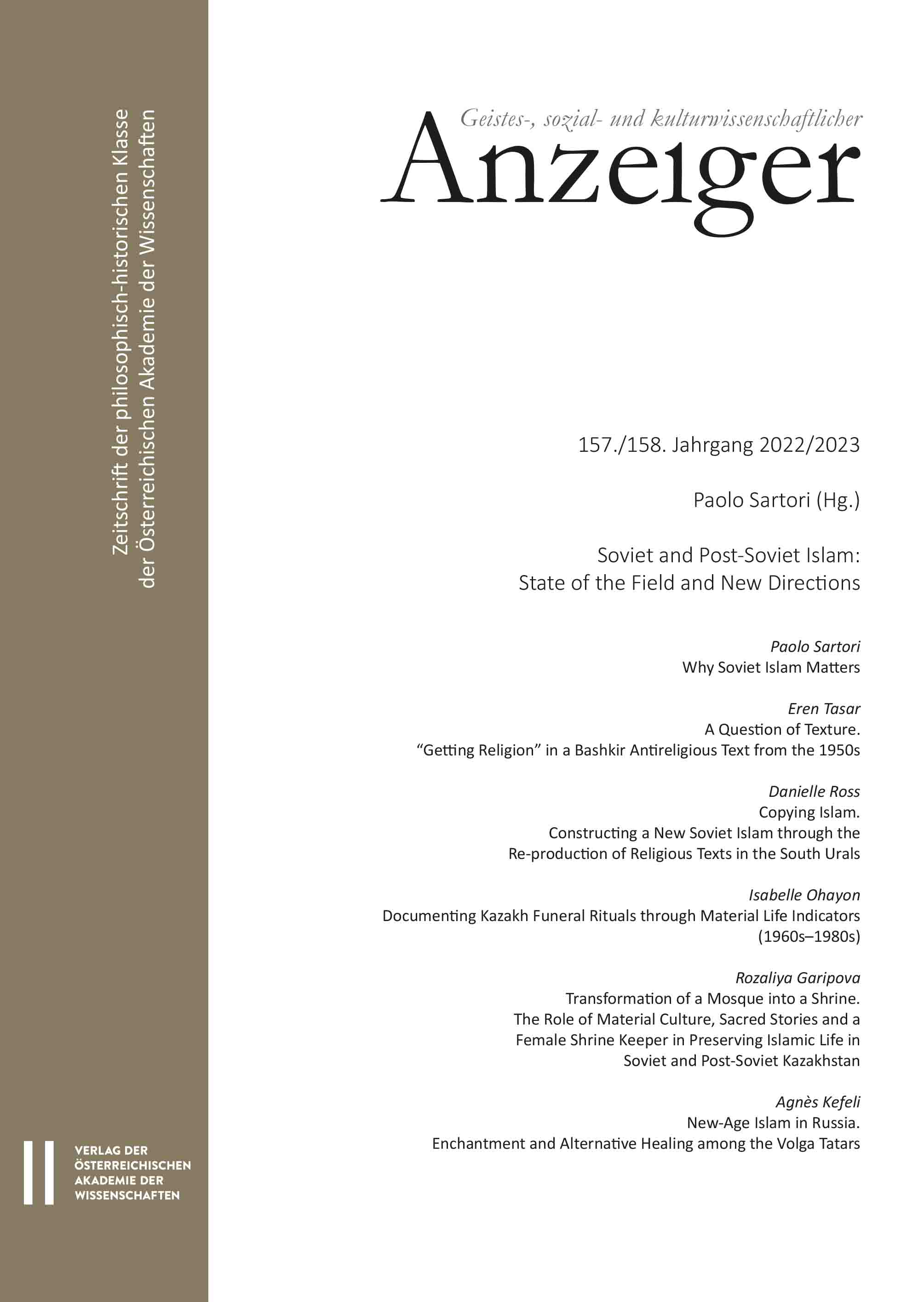
Geistes-, sozial- und kulturwissenschaftlicher Anzeiger, 157. Jahrgang 2022, Heft 1+2, pp. 136-168, 2023/09/21
157. Jahrgang 2022/2023, Heft 1+2

In the 1990s, the language of esotericism and holistic healing permeated Eurasian intellectual discourse as Volga Tatars discussed the place and the nature of Islam in their personal and communal experience. This interest in esoteric enchantment was far from being a Western import, but rather stemmed from a post-war reaction against Soviet rationality through the rediscovery of Russian esotericism, Eastern religions, shamanism, Sufism, and various forms of folk healing. However, after the collapse of the Soviet Union, this interest in esoteric philosophy and New-Age healing practices intensified. For some, New Age became a tool for the routinization of Islam in their daily life; for others, it became part of the debate over what constituted orthodoxy in their community’s religious life. This article draws inspiration from recent anthropological research which conceives of New Age as an “interpretive frame” or “an inner grammar” that can influence or reconfigure traditional religiosity. Esoteric spirituality is an essential part of the Soviet and post-Soviet religious landscape that needs further investigation.
Keywords: Afterlife, alternative medicine, death, ecology, education